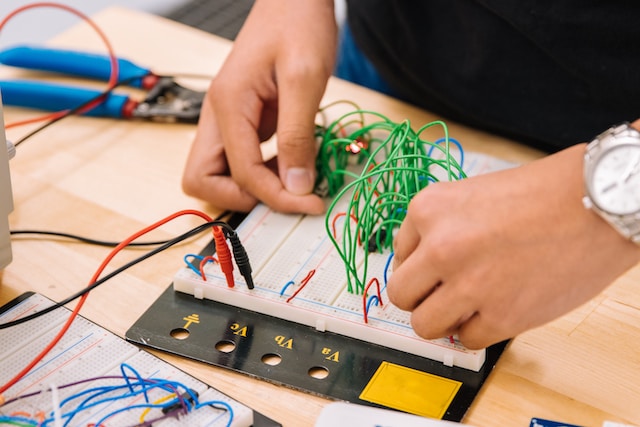Electrical Testing in Saharanpur
Introduction
Electrical testing plays a crucial role in ensuring the safety, efficiency, and reliability of electrical systems. Whether you’re a homeowner, a business owner, or an industrial facility manager in Saharanpur, understanding the importance of electrical testing is paramount. This article aims to provide you with valuable insights into the world of electrical testing, the various types of tests, and the significance of choosing a reputable service. By the end of this article, you’ll have a clear understanding of why electrical testing is essential and how it helps prevent potential hazards.
Electrical Testing in Saharanpur: An Overview
Before we dive into the specifics, let’s grasp the fundamental concept of electrical testing in Saharanpur. Electrical testing involves conducting a series of examinations and assessments on electrical systems, components, and equipment to evaluate their performance, safety, and adherence to industry standards. The primary objective is to identify any faults, weaknesses, or abnormalities that could lead to electrical malfunctions, accidents, or fire hazards.
The Importance of Electrical Testing
Electrical testing is not just a regulatory requirement but also a critical step in ensuring the safety and longevity of electrical installations. Some essential reasons why electrical testing is crucial include:
1. Ensuring Safety
Electrical faults can pose significant safety risks, leading to electrocution, fires, and property damage. Regular testing helps identify potential hazards and allows for timely repairs and upgrades.
2. Compliance with Standards
Adhering to national and international electrical standards is essential to comply with legal requirements and regulations. Electrical testing ensures that installations meet these standards.
3. Enhancing Efficiency
Electrical testing identifies inefficiencies in systems, allowing for optimizations that can lead to energy savings and reduced operational costs.
4. Preventing Downtime
For businesses and industries, electrical breakdowns can result in costly downtime. Regular testing helps prevent unexpected failures and disruptions in operations.
5. Prolonging Equipment Life
Well-maintained electrical systems have a longer lifespan, reducing the need for frequent replacements and associated expenses.
Types of Electrical Testing
Electrical testing encompasses a range of assessments, each serving a specific purpose. Here are some of the most common types of electrical tests:
Visual Inspection
A visual inspection involves a thorough examination of electrical components, looking for signs of wear, damage, or loose connections.
Insulation Resistance Test
This test measures the insulation resistance of cables and wires to check for any leakage or breakdowns.
Earth Continuity Test
The earth continuity test ensures the integrity of the earth connection to prevent electric shocks.
Earth Resistance Test
This test measures the resistance of the earth electrode and verifies its compliance with safety standards.
RCD Testing
Residual Current Device (RCD) testing checks the effectiveness of these safety devices in quickly shutting off the power supply during a fault.
Power Quality Analysis
Power quality analysis identifies and resolves issues related to voltage fluctuations, harmonics, and power factor problems.
Load Testing
Load testing assesses the electrical system’s ability to handle the maximum intended load.
Thermal Imaging
Thermal imaging detects hotspots in electrical equipment, indicating potential failures.
Protective Relay Testing
This test evaluates the performance of protective relays to ensure they function correctly during fault conditions.
High Voltage Testing
High voltage testing is essential for specific industries and involves testing equipment designed for high voltage applications.
Selecting a Reliable Electrical Testing Service
Choosing the right electrical testing service provider is crucial to ensure accurate results and a safe electrical system. Here are some factors to consider:
- Experience and Expertise: Look for a company with extensive experience and knowledgeable technicians capable of handling various testing requirements.
- Accreditations and Certifications: Check if the service provider holds relevant accreditations and certifications, indicating their compliance with industry standards.
- Comprehensive Testing Capabilities: Ensure the company offers a wide range of electrical tests to meet your specific needs.
- References and Reviews: Read reviews and seek references from past clients to gauge the company’s reliability and customer satisfaction.
- Safety Protocols: Inquire about the safety protocols the company follows during testing procedures to minimize risks.
- Cost-Effectiveness: While price shouldn’t be the sole factor, consider the overall value provided by the service.
FAQs
1. What is the ideal frequency for electrical testing in Saharanpur?
Electrical testing frequency depends on several factors, including the type of electrical installation, the industry it serves, and local regulations. However, it is recommended to conduct routine inspections every 1 to 5 years.
2. Can I conduct electrical testing myself?
While visual inspections can be performed by individuals, most electrical tests require specialized equipment and expertise, making it essential to hire a professional electrical testing service.
3. What happens if electrical faults are detected during testing?
If faults are identified, the electrical testing service will provide a detailed report outlining the issues and recommend necessary repairs or upgrades to ensure safety and compliance.
4. Is electrical testing necessary for residential properties?
Yes, electrical testing is equally important for residential properties. Identifying potential hazards can prevent electrical accidents and ensure the safety of residents.
5. How can power quality analysis benefit my business?
Power quality analysis helps identify electrical issues that may affect sensitive equipment, leading to potential damage or inefficiencies. Addressing these problems can improve equipment lifespan and reduce downtime.
6. Can I skip electrical testing if my electrical system seems fine?
No, regular testing is essential even if your electrical system appears to be functioning correctly. Hidden faults or weaknesses may not be apparent until it’s too late, leading to costly consequences.
Conclusion
Electrical testing is a vital aspect of maintaining a safe and efficient electrical system in Saharanpur. By understanding its significance and the various types of tests available, you can make informed decisions to safeguard your property and ensure the well-being of its occupants. Remember to choose a reliable electrical testing service to conduct thorough inspections and provide actionable recommendations for a robust electrical infrastructure.




